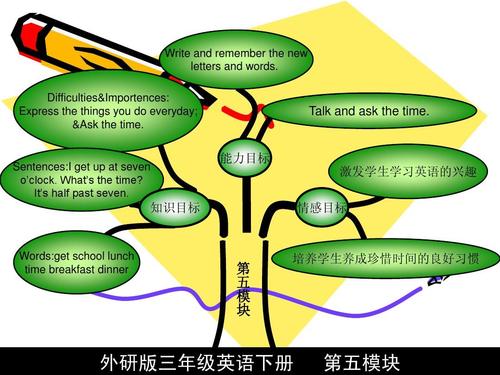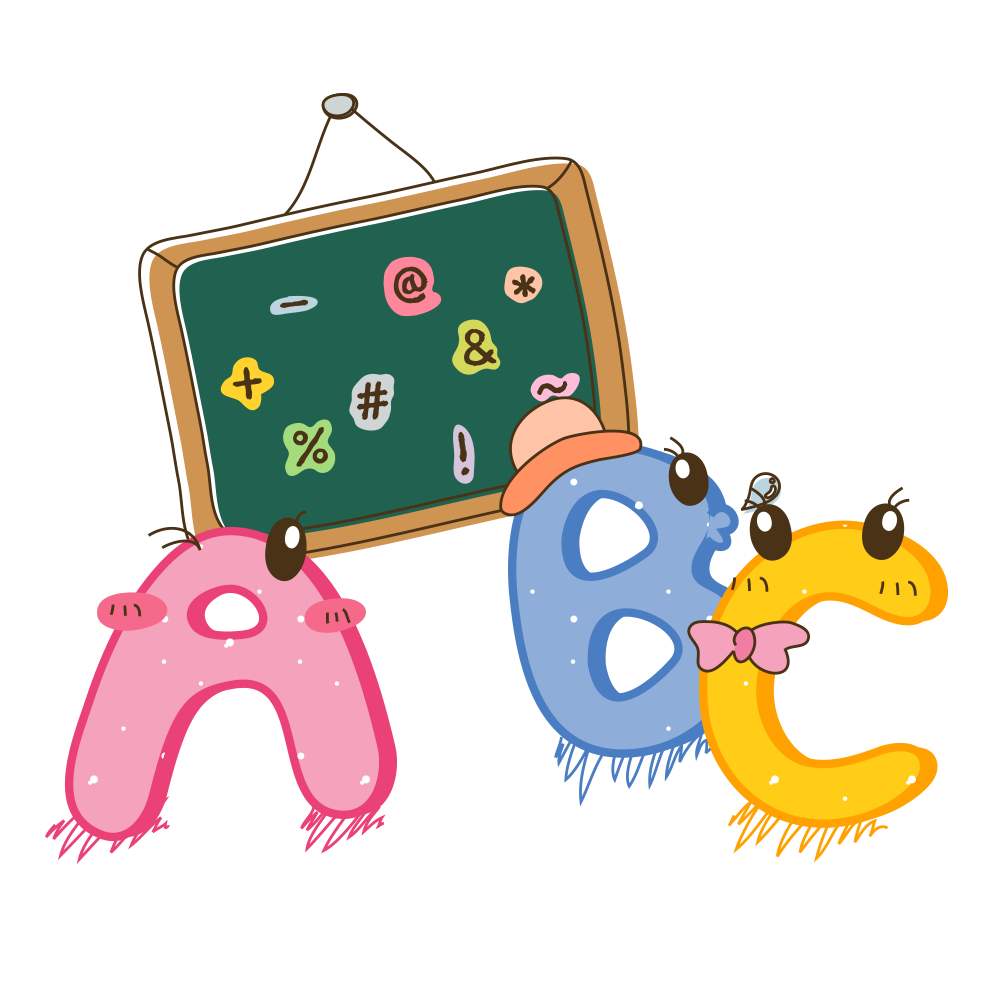
重点词组:
1. fond of “喜爱,爱好” 接名词、代词或动词的-ing形式。例如:
He’s fond of swimming. 他喜欢游泳。
Are you fond of fresh vegetables. 你喜欢新鲜蔬菜吗?
2. hunt for = look for寻找
I have found the book I was hunting for.我找到了那本我在找的书。
hunt for a job 找工作
3. in order to, so as to 这两个词组都可引导不定式作目的状语, in order to可放于句首, so as to则不能, 其否定形式为in order not to / so as not to. 如:
He went to Beijing in order / so as to attend an important meeting.
In order to be noticed, he shouted and waved to us.为了让我们注意他, 他朝我们又是叫喊又是挥手。
4. care about
1) 喜欢,对……有兴趣 = care for
She doesn’t care about money.她不喜欢钱。
2)关心 = care for
She thinks only of herself. She doesn’t care about other people.她只考虑自己。她不关心别人。
3)在乎,在意(接从句或不接任何成分)
These young people care nothing about what old people might say.
这些年轻人根本不在乎老人说的话。
5. such as 意为“诸如……”,“像……”,是用来列举人或事物的。
She teaches three subjects, such as physics and chemistry.她教三门科目,像物理、化学。
6. drop * a line 留下便条, 写封短信
7、make yourself at home 别客气;随便;无拘束
If you get to my house before I do, help yourself to a drink and make yourself at home.
如果你在我之前到我家,自己喝点饮料,随便一点。
8、stay up 不睡;熬夜
I'll be late home, don't stay up for me.我将回家很晚,不要等我了。
9、come about 引起;发生;产生
How did the accident come about?这场事故是怎么发生的?
10、except for 除……之外
(1) except 与 except for 的用法常有区别。except 多用于引起同类事物中被排除的一项。如:
He answered all the questions except the last one.除去最后一个,他回答了所有问题。
(2)except for 用于引述细节以修正句子的主要意思。如:
Except for one old lady, the bus was empty.除去一个老太太,这辆公共汽车全空了。
(3)但在现代英语中,except for也用于表示except的意思。如上述第一个例子可以是:
He answered all the questions except for the last one.
(4) 另外,在介词短语之前只能用except,不能用except for。如:
We go to bed before ten, except in the summer.除了夏季,我们通常十点之前上床睡觉。
11、end up with 以……告终;以……结束
The party ended up with an English song.聚会以一首英文歌结束。
12、more or less 几乎;差不多;大约;大概;大体上
I've more or less succeeded, but they haven't.我差不多成功了,而他们没有。
13、bring in 引进;引来;吸收
(1) We should bring in new technology.我们应该引进新技术。
(2) He brings in 800 dollars a month.他一个月挣八百美元。
14、get away(from) 逃离
The thieves got away from the shop with all our money.
小偷带着我们所有的钱从商店逃跑了。
15、watch out (for)注意;留心
(1)Watch out! There is a car coming.小心!汽车来了。
(2)Watch out for the hole in the road.留神路上的那个坑。
16、see sb. off 给某人送行
Tomorrow I will see my friend off at the railway station.明天我到火车站给朋友送行。
17、on the other hand 另一方面(用以引出相互矛盾的观点、意见等,常说on the one hand …… on the other hand一方面……另一方面)
I know this job of mine isn't well paid, but on the other hand I don't have to work long hours.
我知道这份工作报酬不高,但从另一方面来说,我也不必工作太长时间。
18、as well as * (sth)而且
He is a talented musician as well as being a photographer.
她不但是摄影师还是个天才的音乐家。
19、take place 发生 take one’s place 入座、站好位置、取得地位
take sb’s place 或take the place of * / sth代替、取代
The Olympic Games take place / are held every four years.
20、on fire 相当于burning, 意为“燃烧;着火;起火”,有静态的含意。Catch fire有动态的含意。
Set… on fire / set fire to …用来表示“使……着火”、“放火烧……”。例如:
Look, the theatre is on fire! Let’s go and help.瞧,剧院着火了,咱们去帮忙救火吧。
21、on holiday 在度假,在休假中
When I was on holiday, I visited my uncle. 我在度假的时候去看望了叔叔。
holiday(holidays)一般指“休假”
Tom and I are going to have a holiday. 我和汤姆准备去度假。
I've already had my holidays this year. 我今年已经度过假了。
22、travel agency
A business that attends to the details of transportation, itinerary, and accommodations
for travelers. 旅行社一种为旅行者提供细致的运输、旅行和住宿方面服务的行业
Also called: travel bureau
23、take off
1)脱下(衣服等), 解(除)掉 He took off his wet shoes.他脱下了湿鞋子。
2)(飞机)起飞
The plane took off on time. It was a smooth take-off.飞机准时起飞。起飞非常顺利。
3)匆匆离开
The six men got into the car and took off for the park.这六个人上了车,匆匆离开去公园。
24. go wrong v. 走错路, 误入岐途, (机器等)发生故障
25. in all adv. 总共
26. stay away v.外出
27. look up 查询(如宾语为代词,则代词放中间)
Look up the word in the dictionary.在字典里查单词。
相关词组:look for 寻找;look after照顾,照料; look forward to期待;look into调查;
look on旁观;look out注意;look out for注意,留心,提防;look over翻阅,查看,检查;look around环视;look through翻阅,查看。
28、run after追逐,追求
If you run after two hares, you will catch neither.同时追两只兔子,你一只也抓不到。
29、on the air广播
We will be on the air in five minutes.我们五分钟以后开始广播。
30、think highly/well/much of对……评价很高, 赞赏, 对……印象好
He was highly thought of by the manager.经理对他非常赞赏。
I think well of your suggestion.我觉得你的建议很好。
think badly/nothing/little/lowly of……认为不好, 好……不在意, 不赞成, 觉得……不怎么样
I don’t think much of him as a teacher.我觉得他作为一个老师不怎么样。
31. leave out
1) 漏掉 You made a mistake—You’ve left out a letter “t”.你出错了—你漏掉了一个字母t.
2) 删掉, 没用 I haven’t changed or left out a thing.我没有作出变动也没有删掉任何东西。
32. stare at (由于好奇、激动等张着嘴巴,睁大眼睛地)凝视,盯着看
Don’t stare at foreigners. It’s impolite.不要盯着外国人看,这样不礼貌。
比较:glare at (to stare angrily at)怒视着
33. make jokes about 就……说笑
They make jokes about my old hat.他们就我的旧帽子说笑我。
have a joke with … about …跟某人开关于某事的玩笑。
He stopped to have a joke with me.他停下来跟我开玩笑。
play a joke on…开某人的玩笑
We played jokes on each other. 我们互相开玩笑。
v. joke about取笑
They joked about my broken English.他们取笑我蹩脚的英.
45.take over 接管;接替;继承
what is good and still useful should be taken over.好的有用的东西应当继承。
46. break down
1) 破坏;拆散
Chemicals in the body break our food down into useful substances.
人体中的化学元素把食物分解成有用的物质。
2)(机器)损坏 Our truck broke down outside town. 我们的卡车在城外抛锚了。
3) 失败;破裂 Their opposition broke down.他们的反对意见打消了。
4) 精神崩溃;失去控制 He broke down and wept. 他不禁失声痛哭。
5) 起化学变化 Food is broken down by chemicals. 化学物质引起食物转化。
47、get on one’s feet
1)站起来;站起来发言
2)(=stand on one's feet)自立, 经济上独立
3)(人)病好了, 可以起床了; (使)恢复, 复苏(指企业)
48、go through
1) 经历;经受;遭到
These countries have gone / been through too many wars.这些国家饱经战火。
2) 完成;做完 I didn't want to go through college.我不想上完大学。
3)通过;批准 The law has gone through Parliament. 议会已经通过了这项法案。
Their plans went through. 他们的计划得到了批准。
4)全面检查;搜查
They went through our luggage at the customs.在海关他们检查了我们的行李。
重点句型
1.“So + be/have/助动词/情态动词+主词”的结构。此结构中的语序是倒装的,“So”代替上句中的某个成分。如果上面一句是否定句,则使用“Neither/Nor+be/have/助动词/情态动词+主语”的结构。
例如 He’s tired,and so am I.(=I’ m also tired.)
She has had supper,and so can I.(=I’ve had lunch,too.)
2.“So +主语+be/have/助动词/情态动词”结构中的主谓是正常语序,so相当于indeed,certainly,表示说话人对前面或对方所说情况的肯定、赞同或证实,语气较强,意思是“确实如此”。
例如 A:It was cold yesterday.昨天很冷。
B:So it was.的确如此。(=Yes,it was.)
3.“主语+do/does/did + so”结构指的是按上句的要求做了。此句型中do so代替上文中要求做的事,以免重复。
My Chinese teacher told me to hand in my composition on time and I did so.(=I handed in
my composition on time.) 语文老师叫我按时交作文, 我照办了。
4.So it is with…或 It is the same with…句型表示 “……(的情况)也是如此。”当前面的句子中有几种不同形式的谓语时,要表示相同情况,必须使用本句型,不能使用so 引起的倒装句。
She doesn’t play the piano, but she likes singing. So it is with my sister.
5、There you are. 行了,好。
这是一句表示一种事情告一段落或有了最终结果的用语。如:
There you are! Then let's have some coffee.
除此之外,还可以表示“瞧,对吧(果然如此)”的语气。例如:
There you are! I knew we should find it at last.
对吧!我就知道我们最终能找到的。
6、have some difficulty (in) doing sth.
干某事有困难;接名词时,常用句型:have some difficulty with sth.
①Do you have any difficulty (in) understanding English?
你理解英语口语有困难吗?
②She said she had some difficulty with pronunciation.
她说她在发音方面有困难。
7、have a good knowledge of sth.
“掌握……”,“对……有某种程度的了解”
①He has a good knowledge of London. 他对伦敦有所了解。
8、Tree after tree went own, cut down by the water, which must have been three metres deep.
一棵又一棵的树被水冲倒、冲断。那水肯定有三米深。
“must have + 过去分词”表示对已发生事情的猜测。在英语中,must,may,can三个情态动词可用来表示对事情的猜测。Must意为“肯定”,语气很有把握;may意为“可能”、“也许”,语气把握性不大。两者常用在肯定句中。Can意为“肯定”、“也许”,常用在否定句或疑问句中。Must,may,can三者用于表示猜测时,其后面可跟三种不同的动词形式:
1)跟动词原形表示对现在事情的猜测;
2)跟be doing表示对正在发生事情的猜测;3)跟have done表示对已经发生的事情的猜测。例如:
Helen is Lucy’s good friend. She must know Lucy’s e-mail
.海伦是露茜的好朋友。她肯定知道露茜的电子邮件。
9、Wei Bin took out some peanuts and it was fun to see the monkey eat from his hand.魏彬拿出一些花生。看着猴子从他手上吃花生,很有趣。
fun “好玩,趣事”,不可数名词,前面不加不定冠词a。
You’re sure to have some fun at the party tonight. 今天晚上你肯定会玩得很开心。
make fun of“取笑”,“嘲弄”。People make fun of him only because he is wearing such a
strange jacket.人们嘲笑他只是因为他穿了一件那么奇怪的衣服。
funny adj. “可笑的,滑稽的”。He looks very funny in his father’s jacket.他穿着他父亲
的衣服,看上去很滑稽。
10、Many people who saw the film were afraid to swim in the sea……
许多看过这部电影的人都不敢在海里游。
afraid 用法说明:
1)害怕人/ 物,如:be afraid of * / sth
2)不敢做某事,如:be afraid to do sth / of doing sth
He is afraid to go out / of going out alone at night.
3) 担心会发生某事, 如: be afraid of doing sth或be afraid + that clause
He seldom stands on the river bank because he is afraid of falling into the river.
He seldom stands on the river bank because he is afraid that he might fall into the river.
4) 给人不愉快的信息或不赞同某人意见时, 用I’m afraid …, 如:
I’m afraid I’ve got bad news for you.
I’m afraid I can’t agree with you.
11、It is polite to finish eating everything on your plate.把你盘子里所有东西吃完是有礼貌的。
这是一个动词不定式作主语的句型,其中to finish eating everything 是主语,it是形式主语。
12、I wish you all the best.我祝你万事如意.
用wish来表示祝愿的结构是wish * sth, 此外我们还可以用may来表示祝愿: May * do sth如:
May you succeed.
13、Where there is a river, there is a city. 有河流的地方就有城市。
Where在这里引导的是地点状语从句,相当于介词in/ at/ to + the place + where从句9定语从句),意思是“在……地方”。 例如:
Where there is smoke, there is fire.无风不起浪;事出有因。
He lives where the climate is mild.他住在气候温暖的地方。
14、Strong, proud, and united, the people of St Petersburg are the modern heroes of Russia .
圣彼得堡人民坚强不屈、充满自豪、团结一致,他们是俄罗斯当代的英雄。
Strong, proud, and united为前置定语,在这里相当于一个非限制性定语从句:
The people of St Petersburg , who are strong, proud, and united, are the modern heroes
of Russia . 当主语比较短时,这类短语常常放在句首。
15. Congratulations!是一句祝贺用语,在使用时要用复数形式。其他几个通常以复数形式出现表达特定含义的名词有:
manners(礼貌):He is a little boy with good manners.这个小男孩很有礼貌。
regards (问候):Please send my regards to your parents.请代我问候你父母。
16. Every four years athletes from all over the world take part in the Olympic Games.
没四年,世界各地的运动员们都要参加奥运会。
“every + 基数词 + 时间/ 距离单位”词表示“每多少时间/ 距离”。如:
every five days(每五天), every three hours(每三小时), every ten metres(每十公尺)
类似表达形式还有:every fifth day, every third hour
“每隔一天”的表达形式有:every second day, every two days, every other day.
17、Modern cellphones are more than just phones—they are used as cameras and radios, and
to send e-mail or surf the Internet.现代的手机不仅仅是电话机—它们也当坐照相机和收音机使用,还可以发送电子邮件和上网。
use A as B 把A用作B。例如:
In ancient times, people used stones as tools for farming.在古代,人们把石头用作耕作的
工具。
use sth to do sth用某物来做某事。例如:
In ancient times, people used stones to kill animals for food.
在古代,人们用石头来捕杀动物获取食物。
18、The answer seems to be that we have a need to stay in touch with friends and family no
matter where we are or what we are doing.答案似乎是:无论我们在何处或正在做什么,我们都需要和朋友以及家人一直保持联系。
1) seem 似乎,好像,其用法及搭配有:
seem + adj., 如:
This problem seems complicated, but actually it is simple.
这个问题看似复杂,其实很简单。
seem to do
I seem to have seen him somewhere before.我好像以前在哪儿见过他。
It seems that…,
It seems that everything is going on well.好像一切正常。
It seems as if…,
It seems as if it’s going to rain.看来快要下雨了。
2) no matter无论,不管,后面常跟疑问词引导的从句,其意相当于疑问词后加ever。如 no matter what=whatever; no matter where=wherever; no matter how=however; no matter when=whenever例如:
No matter when (Whenever) I meet him, he is always wearing that old hat.
不管我什么时候遇见他,他总是戴着那顶旧礼帽。
No matter how (However) expensive the cellphone is, I’ll buy it because I need one badly.
无论这手机有多贵,我都要买。因为我急需有个手机。
重点语法
直接引语和间接引语
1. 直接引语在改为间接引语时,时态需要做相应的调整。
eg: “I broke your CD player.” (一般过去时改成过去完成时)
He told me he had broken my CD player.
Jenny said, “I have lost a book.” (现在完成时改成过去完成时)
Jenny said she had lost a book.
Mum said, “I’ll go to see a friend.” (一般将来时改成过去将来时)
Mum said she would go to see a friend.
过去完成时保留原有的时态
He said, “We hadn’t finished our homework.”
He said they hadn’t finished their homework.
注意 直接引语是客观真理,过去进行时,时态不变。
2. 在直接引语变间接引语时,如果从句中的主语时第一人称或被第一人称所修饰,从句中的人称要按照主句中主语的人称变化。如:
Mary said, “My brother is an engineer.”
Mary said her brother was and engineer.
3. 直接引语如果是反意疑问句,选择疑问句或一般疑问句,间接引语应改为由whether或if引导的宾语从句。如:
He said, “Can you run, Mike?”
He asked Mike whether/if he could run.
4. 直接引语如果是祈使句,间接引语应改为“tell(ask, order, beg等) * (not) to do sth.”句型。如: “Pass me the water, please.”said he.
He asked him to pass her the water.
5. 直接引语如果是以“Let’s”开头的祈使句,变为间接引语时,通常用“suggest+动名词或从句”的结构。如:
She said, “Let’s go to the cinema.”
She suggested going to the cinema. 或She suggested that they should go to the cinema.
现在进行时表将来的动作
现在进行时表将来的动作,谓语通常为瞬间动词。如:come, go, arrive, leave, start, return, stay, meet, get等。这些动词的进行时后不能再接具体的时间。
(1)用现在进行时表示将来,指的是近期的,按计划或安排要发生的动作。
(2)现在进行时表示将来与表示正在进行的动作的区别在于:前者通常用瞬间动词(有时一些常用动词也可以这样用如:do)如:go, come, start, return, get, arrive等。而后者通常是持续性动词。
He is reading a novel. 他在看小说。
The train is arriving soon. 火车就要进站了。
(3)用现在进行时表示将来的时间,在句中或上下文中通常有表示将来时间的状语。
(4)现在进行时与一般现在时表示将来动作的区别在于:前者表示的将来的动作往往是可以改变的,而后者则是根据规定或时间表预计要发生的动作或事情,因此往往是不可改变或不可随便改变的。
What are you doing next Friday?
下星期五你们打算干什么?
The plane takes off at 7:30 tonight.
飞机今晚七点半起飞。
定语从句
1. 定语从句的结构及理解
2. 定语从句的关系词的使用
3. 定语从句的简化表达
知识总结归纳
(一)定语从句分为限定性定语从句和非限定性定语从句:
限定性定语从句:从句对先行词进行必要的描述或说明,缺少它,则句义显得不完整,从句与先行词紧密相连。
非限定性定语从句:对先行词进行补充说明,解释,它与先行词之间有逗号隔开。
1. Before she could move, she heard a loud noise, which grew to a terrible roar.
2. Tree after tree went down, cut down by the water, which must have been three meters deep.
3. Flora, whose beautiful hair and dress were all cold and wet, started crying.
4. Their talk includes rhythm and rhyming words as well as tongue twisters, which often make the audience applaud.
(二)定语从句的结构:在复合句中,修饰某个名词或代词的句子(做这个名词或代词的定语)叫定语从句,定语从句一般放在被修饰的名词或代词后面,被修饰的名词或代词叫做定语从句的先行词,它与定语从句之间要有一个词连接,这个词指代先行词的内容叫做关系词(关系代词或关系副词:that, which, who, whose, when, where, why)。先行词在定语从句中充当主语,宾语,时间,地点,原因状语。
结构:先行词+关系词+定语从句。
1. There she saw a wall of water that was quickly advancing towards her.
2. In Japan, someone who sees another person making the gesture will think it means money.
3. A theme park is a collection of rides, exhibitions or other attractions that are based on a common theme.
4. The park has a conservation center that helps protect marine animals and their habitats in the rivers and coastal waters of Asia.
5. Visitors can go on exciting rides where they can feel what it is like to do the things they have seen their heroes do in the movie.
6. Oprah Winfrey is a black woman whose rise to fame is an inspiring story.
(三)关系词前面可以根据定语从句的内容加上一些介词,这些关系词在介词后面常用which 或whom.
1. There was a man with whom I would have to work together and finally the manager of the company.
2. Many people who saw the film were afraid to swim in the sea when they remembered the scenes in which people were eaten by the shark.
知识重点与难点
(一)当先行词有最高级,序数词修饰,是不定代词,或是all, no, only等形式时,关系代词一般用that,而不能用which。
1. The Titanic was the largest ship that had ever been built at that time.
2. There is one thing that keeps worrying me.
(三)定语从句的简化表达:
1. The man who is sitting on the platform is a professor from Wuhan University.
2. The letter that was mailed last night will reach him tomorrow.
3. The question that is being discussed is very important.
4. You are welcome to a party to be given in our class at 7:45.
说明:以上的定语从句部分可以用更加简单的非谓语形式表达出来:
1. The man sitting on the platform is a professor from Wuhan University.
2. The letter mailed last night will reach him tomorrow.
3. The question being discussed is very important.
4. You are welcome to a party to be given in our class at 7:45.
说明:修饰一个名词除了后面用定语从句以外,还可以用非谓语动词形式:doing短语,done短语,being done短语,to be done短语修饰。其结构和意思如下:
1. 被修饰名词+doing短语: 正在做….的人/正在发生的事。
2. 被修饰名词+ done短语: 被…..的人/事
3. 被修饰名词+being done短语:正在被…..的人/事
4. 被修饰名词+ to be done短语:将要被…..的人/事
(1)Do you know the man talking to my sister ?
(2)The “crazy” gesture, moving the index finger in a circle in front of the ear, means “you have a phone call” in Brazil.
(3)Did you see that car being repaired ?
(4)In a camera, the lens must be focused on the object to be photographed.
(5)The students to attend the meeting will arrive here tomorrow.
(6)Goods imported from abroad are not always better than those made in China.
(7)The Yellow River, said to be “the mother river” runs across China like a huge dragon.
总结:以上做定语的那些短语就是英语语法中所说的分词,不定式的各种形式作定语。
1. 这些短语作定语应放在被修饰名词的后面。如果单独一个V-ing或V-ed形式作定语,则可以放在被修饰名词前面。
2. 分词作定语时,其动作应与全句动作同时发生。V-ing表示主动意义和正在做,V-ed表示被动意义。being done表示正在被做的
3. 不定式作定语表示将要发生的,to be done表示将要被做的
情态动词
1. 情态动词的推测表达
2. 情态动词表达虚拟语气
3. 某些情态动词的特殊用法
知识重点与难点总结
知识重点:
情态动词在表达推测意义的句子中的运用:
(一)用情态动词表达事实的推测。can,could,might,may,must可以用来表达对事实的推测。根据说话人对事实的把握性大小,must表示“肯定…”,may / might / can / could表示“可能……”, must只用于肯定句中,may / might的否定式may not / might not表示 “可能不……”, 而can / could可以用于疑问句,表示“可能,可能……吗?”,其否定式can’t / couldn’t 表示“不可能”。用情态动词可以对现在或过去的事实进行推测。对不同的时间内容推测有不同的结构。
(二)对现在的事实进行推测:
主要结构:…must / may / might +动词原形
be+名词/形容词/介词短语
be + doing
例句:
1. You must be Jeanne. I’m Mathilde Loisel. We used to know each other very well.
2. They must be in bed already at this time of the night.
3. The teacher must be joking.
4. Freda isn’t in class. She must be sick.
5. There must be something wrong.
6. She might be very clever, but she hasn’t got much common sense.
7. He may be arriving this evening.
8. He may be traveling around the world.
9. The keys can’t be in the room. I have just searched it very carefully.
10. Can the news be true ?
(三)对过去的事实进行推测:结构:情态动词+have done / been+名词/形容词/介词短语
例句:
1. Mrs. Longmans must have been a pretty girl in her youth.
2. He couldn’t have seen Anna yesterday. She’s gone abroad.
3. I think I must have left my glasses in the library.
4. He might have overslept again.
5. Where can Tom have gone ?
情态动词表达虚拟语气:表达“本来…”,“不然早就…”。这是情态动词的一种虚拟语气用法。表示说话人所讲的与所发生的事实相反。表达了说话人的埋怨,后悔的语气。其结构是在一些情态动词后面加 have done 结构。根据要表达的意思,有如下结构:
should have done / ought to have done:本应该……
shouldn’t have done / oughtn’t to have done:本不该……
could have done:本来可以……
needn’t have done:本来没必要……
would like to have done:本来很想……
would rather not have done: 本来不愿意……
could / might / have done: 不然早就……
例句:
1. You shouldn’t have laughed at his mistakes.
2. You could have told us earlier.
3. I ought to have bought that dictionary last week.
4. You ought not to have spent so much time in reading novels.
5. We need not have been in a tearing hurry to catch the train.
6. They would like to have seen that film last film.
7. If he had given me his number, I could have telephoned him.
8. They might have been frozen to death but for the rescue in time.
知识难点:
某些情态动词的特殊用法:
need 和dare 的两种形式的用法
need 和dare可以用做实义动词,后面接不定式(to do)结构,在疑问句和否定句中,加助动词do/does/did/或don’t/doesn’t/didn’t。作为情态动词使用时,主要用于疑问句和否定句中。情态动词needn’t(没有必要,不必)相当于don’t have to
例句:
1. It is cold, you need to wear some warm clothes.
2. Need I stay here with you for a while ? Thank you, you needn’t.
3. How dare you speak to parents like that ?
注意:
句型I dare say+从句。 意思是:我肯定…… = I’m sure或There is no doubt that+从句。
例句:I dare say that my uncle will get the money if I die.
will和would
表示“意志”或“愿意”,would 则指过去愿意做……
例句:1. He said that he would help us.
2. You may telephone if you will accept this job.
would可以表达“过去习惯做……”类似于“used to do”
例句:1. When we were children, we would go swimming every summer in that river.
表示请求,固定的句型:Will/Would you please do…? / Would you like to do…?
例句:Will/Would you please give him a message when you see him ?
shall
1. 用于第一,三人称,表示“请求”;“建议” 或“推荐”
例句:1. Shall we start the meeting now?
2. Shall I watch TV now ?
3. Shall my son carry the case for you ?
2. 用于第二人称,表示“命令,“要求”,“许诺”
例句:1. You shall take whatever you like.
2. You shall not go to the party with me if you make so much noise again.
在表示推测的否定句或疑问句中,常用can /can’t /could / couldn’t表示,意思是:“可能…吗?”;“…不可能…”。而不能使用mustn’t或must等词。
与it有关的主要句型
it强调句型
知识总结归纳:
(一)it用做形式主语或形式宾语:根据句子结构的需要,it用做形式主语或形式宾语,而真正的主语或宾语(to do 短语,doing短语,名词性从句)则放在句尾。
主要句型:
It’s +形容词/名词+连词+名词性从句
to do sth.
doing sth.
find / make / think / feel it +形容词/名词+连词+名词性从句
to do sth.
doing sth.
例句:
1. It will become more and more important to have a good knowledge of English .
2. It’s usual for close friends to have similar ideas and beliefs .
3. It’s a pity that I didn’t think of it earlier.
4. It’s no use going there so early.
5. Out teacher thinks it no good learning without practice.
6. Didn’t I make it clear to you that I was not coming ?
7. We found it strange that no one would take the money.
(二)其他句型
1. It takes+时间段+sb.+ to do sth.
2. 表示“据说,据报道,/人们认为/相信/建议等
It’s said that…….
It’s reported that ……
It’s believed/thought/suggested that……
例句:
1. It generally takes time to reach this point—being on the same wavelength .
2. It is believed that the two children went off exploring(探险)on their own and get stuck on the cliff .
3. It’s suggested that we should have a meeting to discuss the problem .
4. It was once predicted(预测)that British and American English would become separate languages finally .
(三)it在强调句型中:在英语中,为了突出强调句子的某一个成分(谓语除外),达到强调或使听话人特别注意这一部分的目的。便形成了一种强调句型。
It is / was+被强调的部分+that / who+句子的其他部分。
It is / was not until+时间+that+句子的其他部分。
例句:
1. I saw John on my way to school this morning.
It was John who/that I saw on my way to school this morning.
It was on my way to school that I saw John this morning.
It was this morning that I saw John on my way to school.
2. It was his best suit that John wore to the dance last night.
3. It was not until 1920 that regular radio broadcast began.
4. It was the strange way things looked and sounded in my familiar room at night that frightened me so much .
5. It was the kindness and sympathy in their eyes that prevented me from doing so .
知识难点:
(一)注意强调句型的变形,即以一般疑问句或特殊疑问句的形式出现的强调句型。
1. What is it that Joe can’t find in the bathroom ?
2. Where was it that you met the foreign guests from Australia?
3. I can’t quite remember when it was that we married.
4. Was it because he was very ill that he asked for leave?
(二)是强调句型还是that主语从句或其他复合句
1. It is a fact that English is being accepted as an international language.
2. It is these poisonous products that can cause the symptoms of the flu, such as headache and aching muscles.
3. It was almost ten o’clock when our soldiers came back from the front.
4. Was it in this place that the last king died ?
(三)注意强调句型中被强调部分带有定语从句
Was it at the air battle on June 8, 1944, which was led by Captain Johnson that Peter lost his life.
主谓一致
知识总结归纳
(一)概述:
主语与谓语的一致:在英语表达中,谓语动词的形式要和主语的人称和数保持一致。主要体现在be动词,助动词do, have 以及一般现在时态中的动词形式。
谓语动词与主语保持一致的基本原则:语法一致,就近一致和意义一致。
名词或代词做主语有人称和单,复数之分,动词的单数就是第三人称单数形式,而动词的复数形式即动词的原形。
例句:
1. I am seventeen, and he is sixteen.
2. There is a desk in the room, but there are no chairs in it.
3. John gets up at six o’clock every morning.
4. What is the latest news about the Olympic Games ?
5. The family are sitting at the breakfast table.
(二)语法一致:
1. 由and连接的两个名词或代词做主语:
(1)这部分主语表示的是两个人或两件不同的事物,谓语动词用复数形式。
例句:
① My brother and I have both seen that film.
② Both rice and wheat are grown in this part of China.
③ The poet and the novelist were both present at the meeting.
④ Reading, writing and arithmetic are called the three R’s.
(2)这部分主语表示具有两个身份或性质的同一个人或一个完整的事物,谓语动词用单数形式。
例句:
① The professor and writer is speaking at the meeting.
② War and peace is a constant theme in history.
③ One more knife and fork is needed.
④ The statesman and poet was engaged in warfare all his life.
⑤ Law and order has been established.
⑥ Bread and butter is our daily food.
⑦ Fish and chips is a popular fast food.
⑧ The stars and stripes is the national flag of U.S.A.
(3)这部分主语前面有each, every, many a, no 等修饰时,谓语动词一般用单数形式。
例句:
① Each doctor and(each)nurse was given a new shirt.
② No sound and no voice is heard.
③ Many a boy and girl has made the same mistake.
④ Every minute and every second is precious.
2. 动名词,不定式,主语从句做主语时,谓语动词用单数形式。
例句:
① Reading is a great pleasure in life.
② To live means to create.
③ That we need more time is obvious.
④ What is needed is food and medicine.
3. 表示时间,金钱,距离,重量的复数名词表示数量做主语时,被视为一个整体,谓语动词用单数形式。
例句:
① Three thousand miles is a long distance.
② Eight hours of sleep is enough.
4. 不定代词anyone, anything, everyone, everything, someone, something, no one, nothing, each the other 等做主语时,谓语动词用单数形式。
例句:
① Is anybody going to tell him the news ?
② Someone wants to see you.
(三)就近原则
由连词or, either…or, neither…nor, not only…but also, 连接的两个名词或代词做主语时,谓语动词和离它最近的哪个名词或代词的人称和数一致。
例句:
1. Either you or Jean is to be sent to New Zealand.
2. Not only his family but also he likes Chaplin’s movies.
3. Neither Tom nor the Browns enjoy their journey to Beijing owing to the bad weather.
4. George or Tom is wanted.
注意:There be句型中be 的形式由它后面的第一个名词的数决定。
例句:
1. There aren’t any letters in the mail for you today.
2. There is a lamp, two pens and three books on the desk.
3. Here are some envelopes and paper for you.
名词后面带有with, along with, together with, besides, except, but, like, including, as well as, rather than短语共同做主语时,谓语动词与这些短语前面的那个名词的数一致。
例句:
1. All but one were here just now.
2. A library with five thousand books is offered to that nation as a gift.
3. An expert, together with some assistants, was sent to help in this work.
4. You as well as I are wrong.
(四)意义一致
1. 代词none, neither, all的不可数形式还是复数形式由它们指的内容决定
例句:
(1)All hope has gone.
(2)All are agreed on this point.
(3)—Is there any milk in the fridge? —No, there is none.
(4)None has returned from the meeting.
2. 集合名词group, class, family, army, enemy, team等名词的单,复数形式根据它们强调的内容而定。
例句:
(1)The class were all cheerful.
(2)The team were taking over some new plays.
(3)The group are reading the newspapers.
(4)The army is going to remain in this town.
(5)The army have rescued the travelers.
3. 限定词短语all of…; none of…; a lot of…; 以及分数/百分数+of ….修饰名词构成的名词短语做主语时,谓语动词的形式由of 后面的名词形式决定。
例句:
(1)None of these suggestions are very helpful.
(2)I don’t think any of us wants to work tomorrow.
(3)Two-fifths of the students in the class are from Arabic-speaking countries.
难点突破
1. 主谓一致的考查主要体现在单项选择和短代改错两个题型中。同学们在练习和应试时,遇到这样的题时,要牢记主谓一致的三个基本原则。一定要根据句子内容抓住关键的主语部分。同时还要考虑句子的时态和语态。
2. one of +复数名词做定语从句的先行词时,定语从句中的谓语动词与复数名词一致。 the only one of +复数名词做定语从句的先行词时,定语从句中的谓语动词用单数形式。
例句:
Jim was one of the boys who were late for class.
Jim was the only one of the boys who was late for class.



